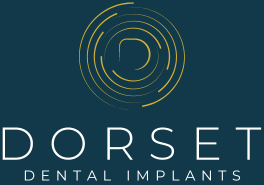Implants vs Crowns
If your teeth have been affected by decay or trauma, your dentist may offer you a dental crown or an implant.
The good news is that both processes are essentially pain-free.
- A dental implant ‘crown’ is an artificial tooth that replaces the natural tooth. The root is removed and replaced with a titanium implant with a post to fix the implant ‘crown’ in place.
- A dental crown replaces the decayed part of a tooth that cannot be retained. The tooth’s root remains as is.
Crowns
- However, a crown is just a replacement for the top part of the tooth, which is visible in your mouth, rather than being a replacement option for the root.
- A crown is often called a ‘cap,’ because it acts as a cap to cover the tooth.
- Crowns are kept in place by being fixed to the remaining teeth surrounding the gap, which often means there is still a microscopic space.
The tiny space around the crown is potentially still vulnerable to decay, and if you suffer from cavities, we will most likely have to remove the crown so the decay can be treated.
A crown is a highly effective treatment to restore damaged teeth, and there are some advantages of using crowns.
Pros:
- Crowns provide support for teeth that have been damaged by decay
- They hinder any further decay
- Crowns can provide a protective shield after a root canal procedure
- Help hold a cracked tooth in place
- Aesthetic appeal: improve teeth appearance as it can alter shape and colour

- They are much cheaper than dental implants
- They are popular as patients get to keep the tooth
Cons:
- The teeth must be filed into place before the crown can be fitted – an irreversible procedure
- Heightened sensitivity of teeth post-treatment (can be targeted with a sensitive toothpaste, and usually the sensation reduces after a few weeks)
- Risk of chipping crown
- Dental cement used to hold the crown in place may wash away over time.
Implants
Generally, implants are accepted as a better choice than crowns if you can afford them.
Dental implants will not impact the surrounding teeth and offer less infection risk.
However, as shown, crowns have many benefits; the two are used to treat slightly different issues.
- Crowns can be used to treat the tooth after decay if the tooth has been impacted too heavily for a filling to work as a solution.
- Crowns also help to make subtle changes to the teeth, e.g. discoloured or chipped, uneven teeth – they can be a solution to preserve the teeth you already have.
- Dental crowns are a reliable long-term option, usually lasting 5-15 years.
An implant works more like a natural tooth; it is an artificial metal implanted post that replaces the root of the natural tooth.
It is a full tooth (ie root and crown), whereas a dental crown is usually just the top part of the tooth.
Dental implants are more invasive procedures since the implant will be fully inserted into the jaw bone to create a sturdy root.
To conclude, although the lines regarding their functions have blurred, there are clear differences between dental implants and crowns.
Generally, crowns are more often used for cosmetic reasons, and implants are used when the whole tooth must be removed (as a result of injury, decay or trauma).
However, these rules are not strictly set in stone, and the best option is to meet with a dentist to carry out an evaluation of your teeth and recommend personalised advice for you.
Get in contact today at 01202 973300 or book a free consultation meeting.


